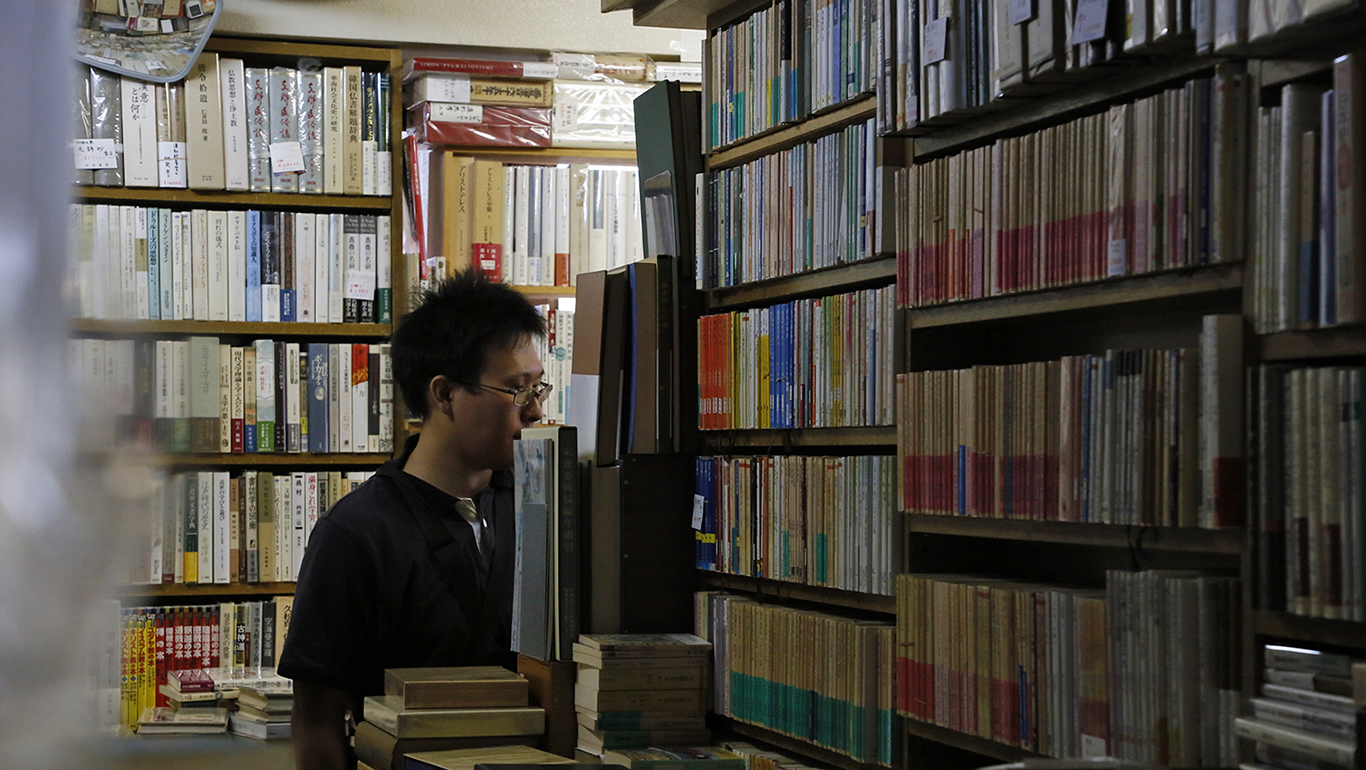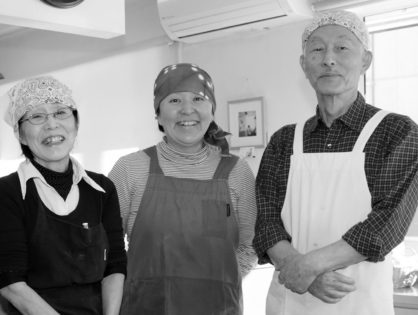SHIYOU SHOIN
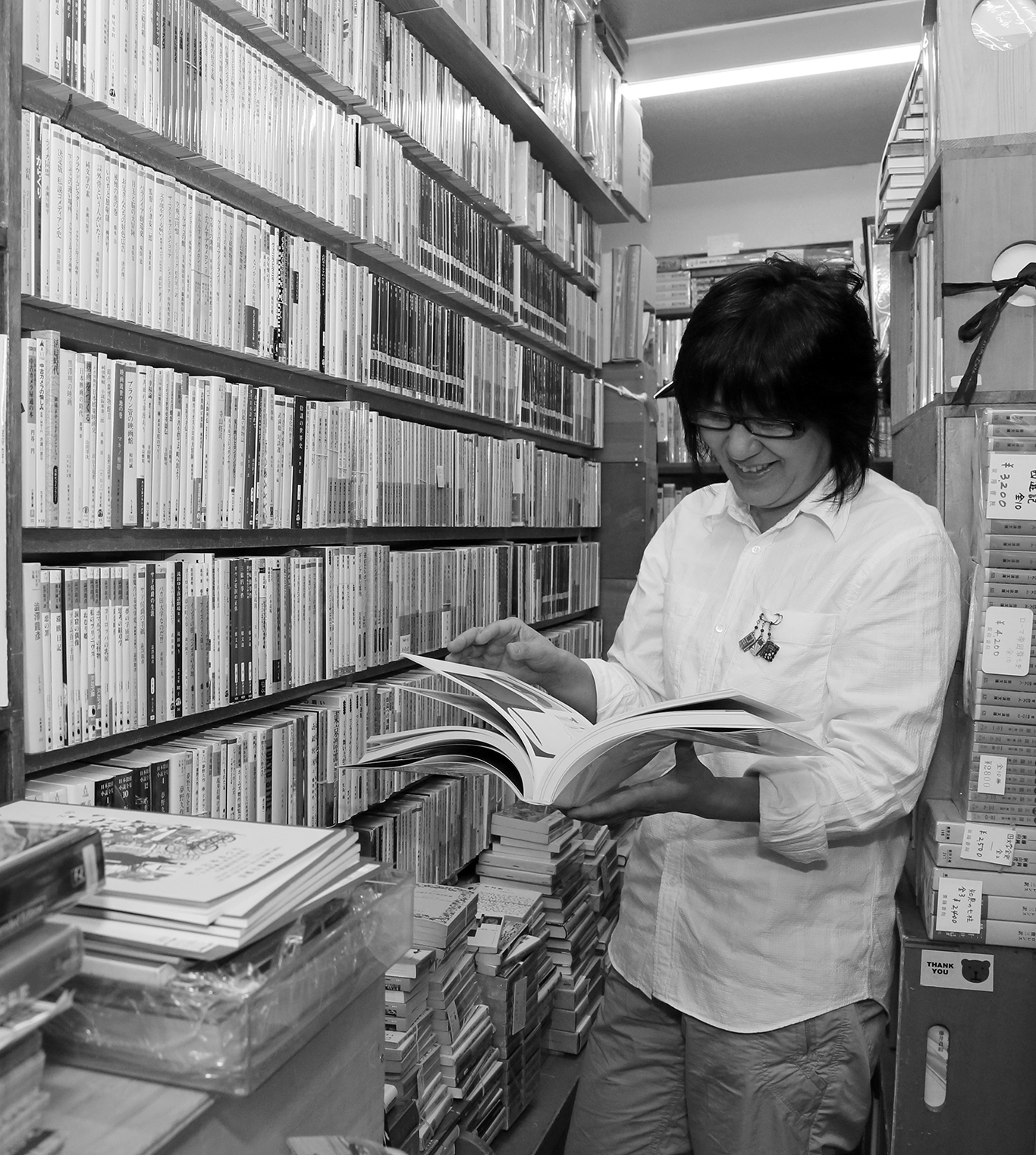
An antique bookstore strong in Humanity, Chinese Culture, and Art, protected by a female owner
“Our job is to protect the books to posterity.”
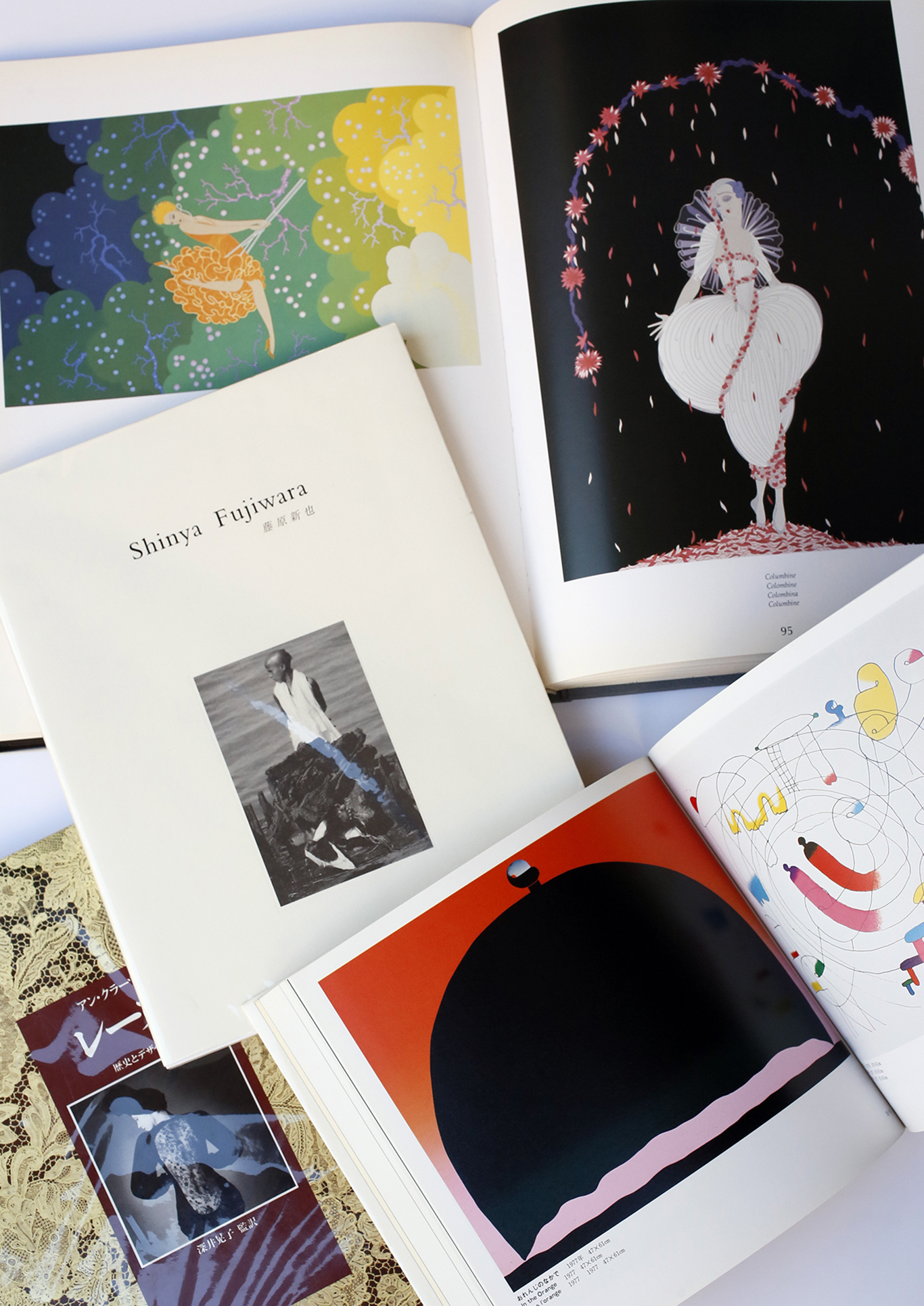
Mari Kamakura – the bookstore owner of Shiyou-shoin
Cats are cute, aren’t they?
“This shop is like my own room and also is my brain,” says Mari Kamakura, the owner of an antique bookstore named Shiyou-shoin located diagonally across from La Pansé.
You can see the books piled up to the ceiling – which is an ideal image of an antique bookstore. But after a while you will notice that there is no dusty smell peculiar to antique stores. All books are clean and well maintained.
Taking in advantage of feminine sensitivity in the men mainstreamed antique industry.
Women antique store owners are not very easy to find. Moreover, Mari is a minority also to the point that she started the business by herself while there are many second and third generations in this business.
“I worked in many stores, such as new-bookstores and foreign-bookstores. Around 20 years ago, I decided to build a career in something I like, which are books. I didn’t think very deeply at that point.”
After starting the store, she found out the stern reality that the antique book industry is a men-centered society. “Just like the soup recipe is a top secret for Ramen restaurants, book stocking is top secret for my store,” she explains, and avoids talking about the struggles of being a woman in this industry.
About twenty years have passed since foundation. In the beginning, sales were mainly at her store but recently antique book festivals have also become something important. Shiyo-shoin is known for having a selection of good books, but the strong genre especially are Humanity, Chinese Culture, History, Archeology, Art, Thoughts, Photo Collection books, Picture books, and Cat related books.
“Cats are cute, aren’t they?” Mari handles antique books by taking in advantage of feminine sensibility. All the books you pick up at Shiyo-shoin are very well maintained. A wiping cloth, an eraser for polishing books, and a pricing pencil are her work tools.
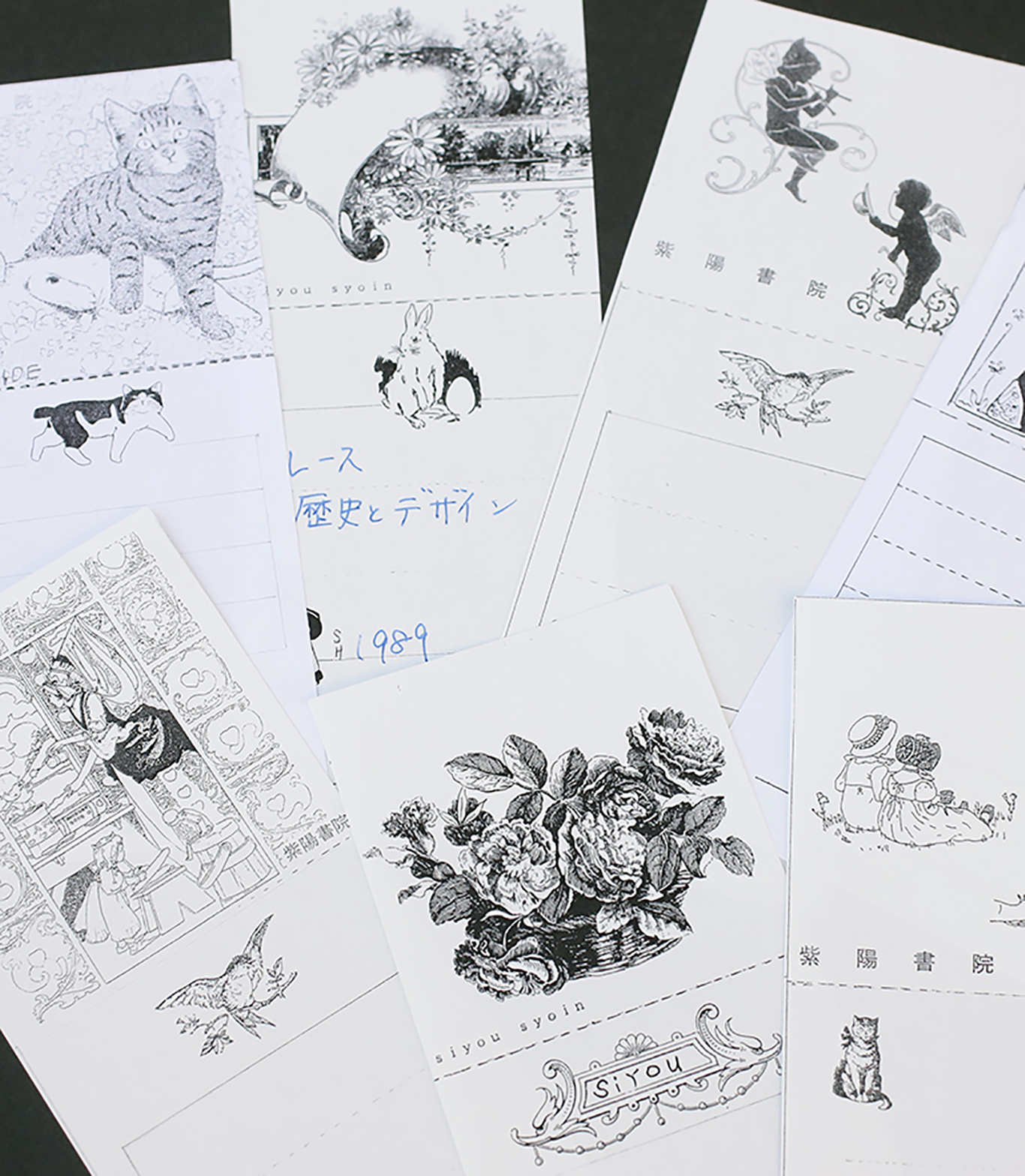
“I simply like books, so I don’t want to see them being treated sloppy and covered with dust. I can’t accept people touching the books with dirty hands just because they are secondhanded. (laughing)”
Dense communication with giving shelves and price tags her heart full of emotion
Mari told us that the antique bookstore’s job is to judge the value of books.
“Taking in note of the market price, we judge the value with the sense of ‘whether you think this book is interesting or not’. Only those who understand that value will buy the book at the price given.”
Whenever there is a customer that catches Mari’s interest, she follows the movement of the eye.
“I can tell what level of antiqueness the customer wants by how they look at the spines of books.”
The seller’s feelings are expressed on the price tag and how the books are set on the shelves. There is no need to have extra conversations – an antique book store is a place where dense communication is taken between the seller and the customer through books.
Mari can immediately notice if the book is returned to another place. She feels pleasant to hear customers say, “I didn’t know this book”. There should be an intellectual discovery at Shiyo Shoin – where Mari protects the store with great care.
More than 70,000 new books are annually published in Japan. Although most of them disappear in a while, antique bookshops protect books to remain in this world.
“I have a confidence of taking part in inheriting the book culture. I’m meditating books to someone out there waiting to read the book next.”
1/When we asked her favorite book, Mari thought to herself, and replied “There are three types of favorites – ‘personally’, ‘as a product’, and ‘as a book’.” In the picture is her personal favorite book. A photo collection book, picture collection book, and a book about lace. 2/ “I have consumed my thoughts for the layout of the store.” The store made from the owner’s preference and choice is just like her brain itself. 3/ Beautiful price tags are also popular as a library catalogue. “I started making them just for fun, but there are over 50 types now.”
